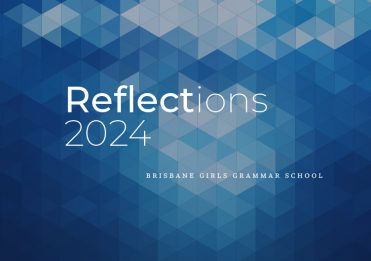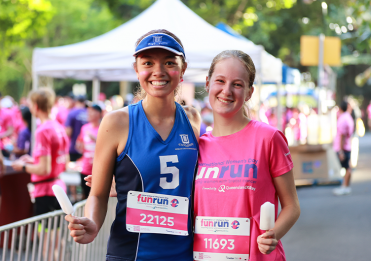What is a Reconciliation Action Plan?
The concept of a Reconciliation Action Plan (RAP) was introduced in 2006 by Reconciliation Australia. The RAP program is based on three pillars: respect for the culture, history, and rights of Indigenous peoples; building strong and respectful relationships between Indigenous and non-Indigenous peoples; and creating opportunities for Aboriginal and Torres Strait Islander peoples. A RAP is an organisation’s formal statement of commitment to reconciliation, with a customised plan that outlines specific steps and initiatives to strengthen relationships, respect, and opportunities.
Reconciliation initiatives have been undertaken at Brisbane Girls Grammar School since 2014 when a group of interested students and staff started the Uralla Club to raise awareness of issues affecting Aboriginal and Torres Strait Islander peoples. At the start of 2022, a Working Group was formed to draft a RAP using the Narragunnawali: Reconciliation in Schools and Early Learning framework, which has been specifically designed by Reconciliation Australia for schools. This framework has been used in more than 4600 schools and aligns with the Australian Curriculum.
Why do we have a Reconciliation Action Plan?
Having a Reconciliation Action Plan allows us to measure our commitment to reconciliation by providing clear, measurable goals, built around relationships, respect, and opportunity, to ensure reconciliation is embodied and pursued in the classroom and around the School. It provides a framework for BGGS to foster stronger relationships with Indigenous Australians, promote cultural awareness, and embed the Aboriginal and Torres Strait Islander histories and cultures cross-curriculum as a priority.
Our vision for reconciliation is to foster deep learning and understanding of the history of this continent and the current experiences of Aboriginal and Torres Strait Islander peoples. Through engaging with, respecting, and valuing the diverse experiences, languages, cultures, and perspectives of First Nations Peoples, we enrich our learning community and seek to develop thoughtful, inclusive, and independent learners.
—from BGGS’ Vision for Reconciliation
For us, reconciliation means acknowledging the past, connecting in the present, and inspiring the future. You cannot educate young Australians without teaching them the history of this land, which includes the story of the oldest societies in the world. The RAP is designed to lead to a higher level of knowledge and pride in Indigenous histories, cultures, and contributions amongst staff and students, embedding respect for the world’s longest-surviving cultures and communities within BGGS, and the actions we have identified allow us to implement, track and review our progress towards this commitment.
How can you get involved?
Our Reconciliation Working Group, which consists of students, teachers, and professional staff, is working across the School to provide opportunities for students and staff to extend their knowledge and understanding of First Nations cultures and to celebrate Indigenous culture and identity. Next Thursday 9 March, students, and staff are invited to a yarning circle in the Studio at lunchtime to discuss Close the Gap Day. In addition, we are holding a Reconciliation Working Group meeting every term for students, staff, and parents to contribute to our RAP and learn about and participate in the actions. The first meeting for the year is also next Thursday, in M212 (upstairs in the Main Building). All are welcome!
| Term | Date | Time | Venue |
|---|---|---|---|
| Term 1 | Thursday 9 March | 3.30 - 4.30 pm | M212 |
| Term 2 | Wednesday 24 May | 3.30 - 4.30 pm | M212 |
| Term 3 | Wednesday 19 July | 3.30 - 4.30 pm | M212 |
| Term 4 | Wednesday 8 November | 3.30 - 4.30 pm | M212 |
Written by the BGGS Reconciliation Working Group.




